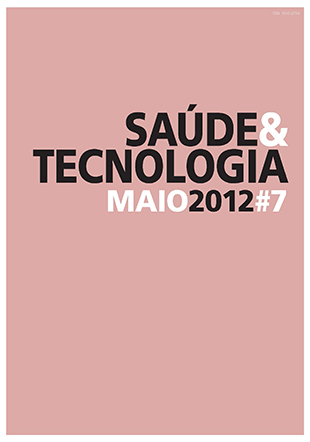Conflitos de natureza ética nos rastreios
DOI:
https://doi.org/10.25758/set.434Palavras-chave:
Ética, Ciências da saúde, RastreioResumo
As melhorias na saúde ao longo do tempo têm sido alcançadas mediante um vasto leque de intervenções. Algumas diretamente ligadas ao contexto dos serviços de saúde (programas de vacinação) e outras mediante melhoria das condições de vida e do ambiente. Historicamente, a melhoria substantiva de diversos indicadores de saúde deve-se mais a medidas não médicas relacionadas com as condições de vida, saneamento básico, ambiente, qualidade do ar, condições dos locais de trabalho e de habitação do que a medidas médicas. No entanto, falar de saúde significa, na maioria das vezes, falar de medicina ou de cuidados de saúde e numa altura em que tantas pessoas não têm, ainda, acesso a cuidados de saúde para as suas manifestas necessidades, aumentam as visitas aos médicos de família para procedimentos preventivos, avaliações globais ou parciais de saúde. Os nossos serviços de saúde têm sofrido consideráveis mudanças nos últimos 30 anos e esta é uma delas. A medicina, dita preventiva, ocupa cada vez mais recursos nos Cuidados de Saúde Primários (CSP) e de uma prática dirigida a pessoas e famílias movemo-nos progressivamente para uma medicina centrada em populações. Sendo que esta deslocação da medicina curativa para a medicina preventiva é estimulada pela política de saúde, existindo mesmo incentivos financeiros neste sentido.
Downloads
Referências
Pinto D, Corte-ReaL S, Nunes JM. Actividades preventivas e indicadores – Quanto tempo sobra? Rev Port Clin Geral. 2010;26(5):455-64.
Weingarten M, Matalon A. The ethics of basing community prevention in general practice. J Med Ethics. 2010;36(3):138-41.
Greenberg Quinlan Rosner Research. American public supports investment in prevention as part of health care reform: solid majorities favor prevention proposals [Internet]. Washington: Greenbergresearch.com; 2009 [cited 2012 Apr 12]. Available from: http://www.rwjf.org/files/research/20091113tfahrwjdpreventionsurvey.pdf
Fletcher RH, Fletcher SW. Epidemiología clinica. 4ª ed. Barcelona: Wolters Kluwer España; 2008.
Nuffield Council on Bioethics. Public health: ethical issues [Internet]. London: NCB; 2007. Available from: http://www.nuffieldbioethics.org/sites/default/files/Public%20health%20-%20ethical%20issues.pdf
Draisma G, Etzioni R, Tsodikov A, Mariotto A, Wever E, Gulati R, et al. Lead time and overdiagnosis in prostate-specific antigen screening: importance of methods and context. J Natl Cancer Inst [Internet]. 2009 [cited 2012 Apr 8];101(6):374-83. Available from: http://www.ncbi.nlm.nih.gov/pmc/articles/PMC2720697/?tool=pubmed
Sirpa S, editor. Public health: ethical issues [Internet]. Copenhagen: Nordic Council of Ministers; 2011. Available from: http://ncbio.org/nordisk/arkiv/public-health-rapport.pdf
Wilson JM, Jungner G. Principles and practice of screening for disease [Internet]. Geneva: WHO; 1968. Available from: http://whqlibdoc.who.int/php/WHO_PHP_34.pdf
Welch HG, Black WC. Overdiagnosis in cancer. J Natl Cancer Inst [Internet]. 2010 [cited 2011 Apr 10];102(9):605-13. Available from: http://jnci.oxfordjournals.org/content/102/9/605.full.pdf+html
Vineis P, Satolli R. From figures to values: the implicit ethical judgments in our measures of health. Public Health Ethics. 2012;5(1):22-8.
Schwartz LM, Woloshin S, Fowler FJ Jr, Welch HG. Enthusiasm for cancer screening in the United States. JAMA. 2004;291(1):71-8.
Schröder FH, Hugosson J, Roobol MJ, Tammela TLJ, Ciatto S, Nelen V, et al. Screening and prostate-cancer mortality in a randomized European study. N Engl J Med. 2009;360(13):1320-8.
Andriole GL, Crawford ED, Grubb RL 3rd, Buys SS, Chia D, Church TR, et al. Mortality results from a randomized prostate-cancer screening trial. N Engl J Med. 2009;360(13):1310-9.
Woolf SH, Harris R. The harms of screening: new attention to an old concern. JAMA. 2012;307(6):565-6.
Administração Central do Sistema de Saúde. Contratualização com os hospitais, centros hospitalares e unidades locais de saúde do SNS [Internet]. Lisboa: ACSS; 2012. Available from: http://www.acss.min-saude.pt/DirecçõeseUnidades/FinanciamentoeContratualização/ContratualizaçãoHHULS/tabid/288/language/pt-PT/Default.aspx. Portuguese
Downloads
Publicado
Edição
Secção
Licença
Direitos de Autor (c) 2022 Saúde & Tecnologia

Este trabalho encontra-se publicado com a Licença Internacional Creative Commons Atribuição-NãoComercial-SemDerivações 4.0.
A revista Saúde & Tecnologia oferece acesso livre imediato ao seu conteúdo, seguindo o princípio de que disponibilizar gratuitamente o conhecimento científico ao público proporciona maior democratização mundial do conhecimento.
A revista Saúde & Tecnologia não cobra, aos autores, taxas referentes à submissão nem ao processamento de artigos (APC).
Todos os conteúdos estão licenciados de acordo com uma licença Creative Commons CC-BY-NC-ND. Os autores têm direito a: reproduzir o seu trabalho em suporte físico ou digital para uso pessoal, profissional ou para ensino, mas não para uso comercial (incluindo venda do direito a aceder ao artigo); depositar no seu sítio da internet, da sua instituição ou num repositório uma cópia exata em formato eletrónico do artigo publicado pela Saúde & Tecnologia, desde que seja feita referência à sua publicação na Saúde & Tecnologia e o seu conteúdo (incluindo símbolos que identifiquem a revista) não seja alterado; publicar em livro de que sejam autores ou editores o conteúdo total ou parcial do manuscrito, desde que seja feita referência à sua publicação na Saúde & Tecnologia.







